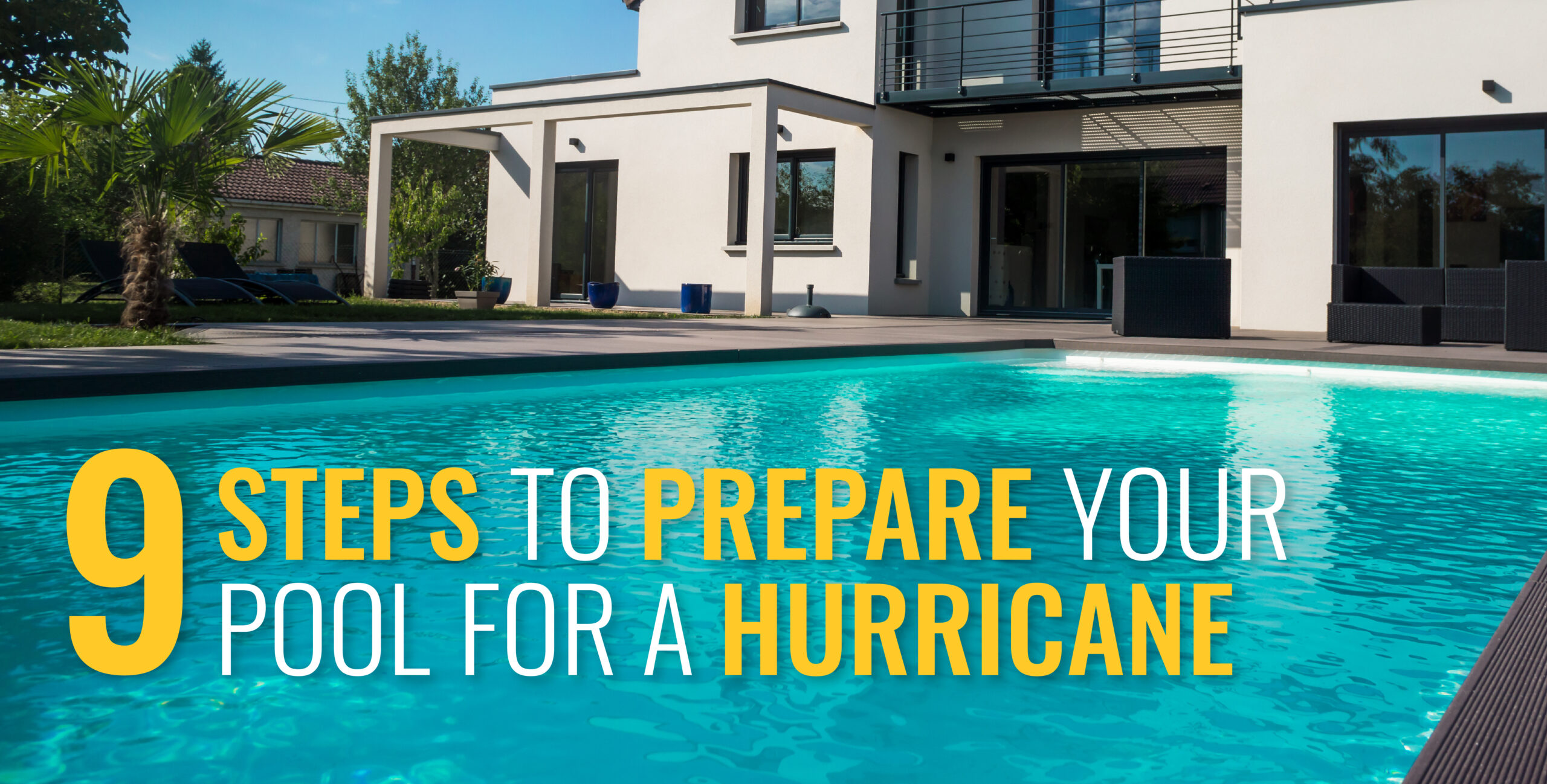As hurricane season approaches, it's crucial to ensure the safety of your property, including your…

Can a Swimming Pool Heat Pump be Installed Indoors?
Indoor swimming pools have always been popular, especially in regions where cold winters take the fun out of swimming outdoors. Not only are indoor pools easier to maintain, since there is little debris to find its way into the water, but you can also enjoy a swim regardless of the weather. Some pool owners may equate an indoor swimming pool with a heat pump. Although it is a good idea to have a swimming pool indoors, a heat pump won’t work indoors and must remain outside. Here is why:
How A Heat Pump Works
A pool heat pump, in the simplest terms, pulls heat from the air and transfers it into the pool water. The typical residential swimming pool heater needs large amounts of fresh air to transfer heat properly. Through the process the system refrigerant pulls heat out of the air, causing the refrigerant to become warmer. The heat pump then transfers this heat to the pool water, making it warmer. The air leaving the system is usually 8-12 degrees cooler than the air entering the system.
Why a Heat Pump Won’t Work Indoors
If the heat pump were installed indoors in a closed environment, it would re-circulate the same air, rather than using fresh air. As a result, the indoor air would quickly be cooled, and the unit would soon shut down. This is because it would no longer be able to draw sufficient heat from the surrounding air. Case in point: the AquaCal Service Team has encountered units installed in garages. On a sunny day, with an outside temperature of 80°F, the indoor temperature would be as low as 35°F. With the pool heat pump running, and the garage doors closed it impeded the operation of the unit.

This unit chilled this space in about 10 minutes from 85°F to 67°F
In other applications, installers recognized the need for fresh air supply to the swimming pool heat pump. To remedy this problem, the installers attached duct work to the units to remove the cool air the units emitted. This allowed them to bring in fresh, warmer air to the system. However, the propeller style fans used to move air through the system are not designed to work against any significant resistance to air flow, which is exactly what a duct system presents. This resistance to the free flow of air through the heat pump leads to loss of performance and potential component failure. For this reason, using duct work to move air to and from an indoor heat pump is not a viable solution.

This unit kept cycling off on FS (defrost) and temp outside was in the 90’s
What To Do When There is No Other Solution
If you feel you have no option except to install your heat pump indoors, contact the manufacturer of your unit. They may be able to help with a solution, but very rarely can units be made to work properly indoors. If you insist on installing your swimming pool heat pump indoors, be sure to provide a way to supply 3,500 CFMs* of fresh air to your unit.
* CFM is (cubic feet per minute) of air travel. The term CFM is typically related to the HVAC industry.
Leave us any questions or comments you may have. We love to hear from you!




The article about why pool heat pumps can’t be installed inside a room containing a swimming pool was very enlightening. Yet, it would seem to me that some permutation of technology could be useful. When an indoor pool is kept reasonably warm, even if there is a tight pool cover, the indoor air temperature and humidity can increase undesirably. Wouldn’t it be ideal to have a heat pump installed outside the pool room that could feed not only from outdoor, air, but through a specially designed duct that could go through the wall into the pool room, bringing the warm moist air into an appropriate chamber of the heat pump?
In this way, especially in geographical locations that don’t have the ideal 80% humidity, some of the warm humid air accumulating in the pool room could be taken in by the heat pump. This would tend to reduce the indoor air heat and humidity within the pool room. The heat pump could then quite efficiently use this ideal warm humid air to more efficiently heat the pool water. It would seem to me that if this type of setup does not already exist, it would be a fruitful area for research and development!
Hi Robert,
Thank you for your feedback. We will pass this idea along to our engineers.
AquaCal